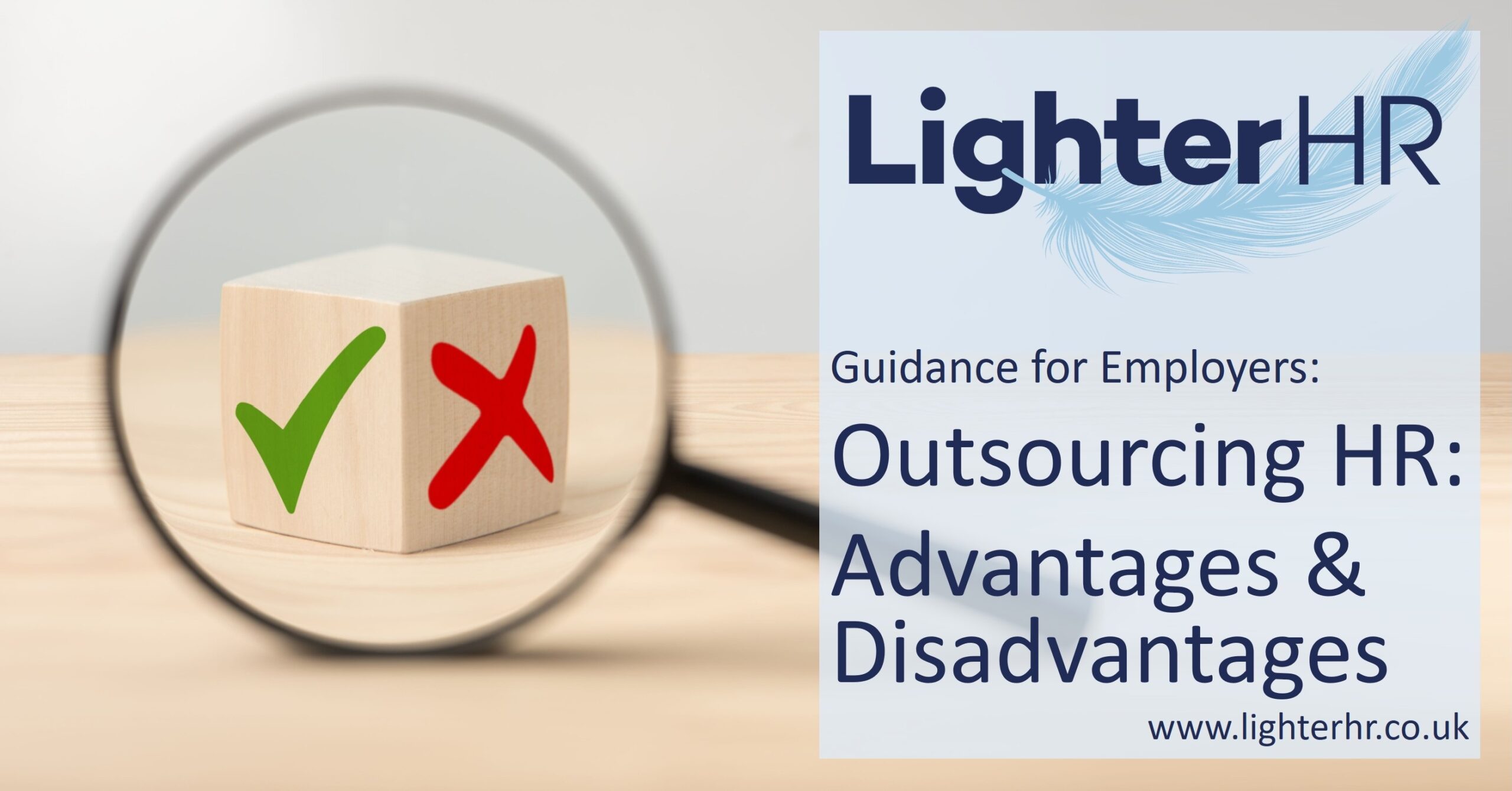
Business Guide to Outsourcing HR
Guidance on Outsourcing HR If you’re thinking about outsourcing your HR, have some questions and want to know a bit more about what it would entail, you’re in the right place. Providing outsource HR services to businesses from almost every sector and of varying different sizes is what we do. We’ve pulled together the questions…

Outsourcing HR Blog
Here are our blog posts on all things “outsourcing HR”

Insights into Outsourcing HR from HR Professionals

Should You Hire or Outsource HR?
When a business reaches the point where it requires more formal HR support, one of the questions asked is “Should we outsource or hire HR?” There are pros and cons of each option so the purpose of this post is to set out some of the things you should consider when deciding on what approach…

What Are the Factors That Lead to HR Outsourcing?
There are various factors that can lead to a company making the decision to outsource HR. We talk with many companies who are considering outsourcing their HR and there are some common themes as to why they are considering this. In this post, we review the themes that lead to companies outsourcing HR.

What Should You Consider Before Outsourcing HR?
Outsourcing is one option for businesses to manage their HR. The success of outsourcing is, of course, mostly down to the quality of the outsource provider. There are, however, some steps you can take to ensure the partnership is a success. In this blog post, we look at what a company should look at before…

What are the Advantages and Disadvantages of Outsourcing HR?
Outsourcing the HR function is one way that a company can get the HR support that it needs. In this blog post, we’ll look at some of the advantages and disadvantages of outsourcing HR functions when compared to having an in-house HR function.
If you can’t find what you’re looking for, see if you can find it here:


